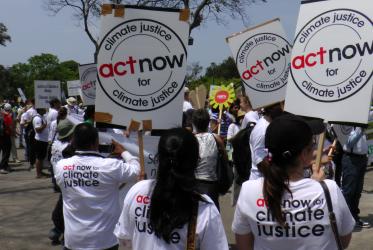Displaying 1 - 11 of 11
Dr Cecile De Sweemer, the doer of God
30 November 2018
Churches' “prophetic voice” will be busy in 2015
18 June 2015
Momentum builds for ban on nuclear weapons
16 December 2014
WCC to host workshop on human rights and nuclear disasters
20 February 2014







